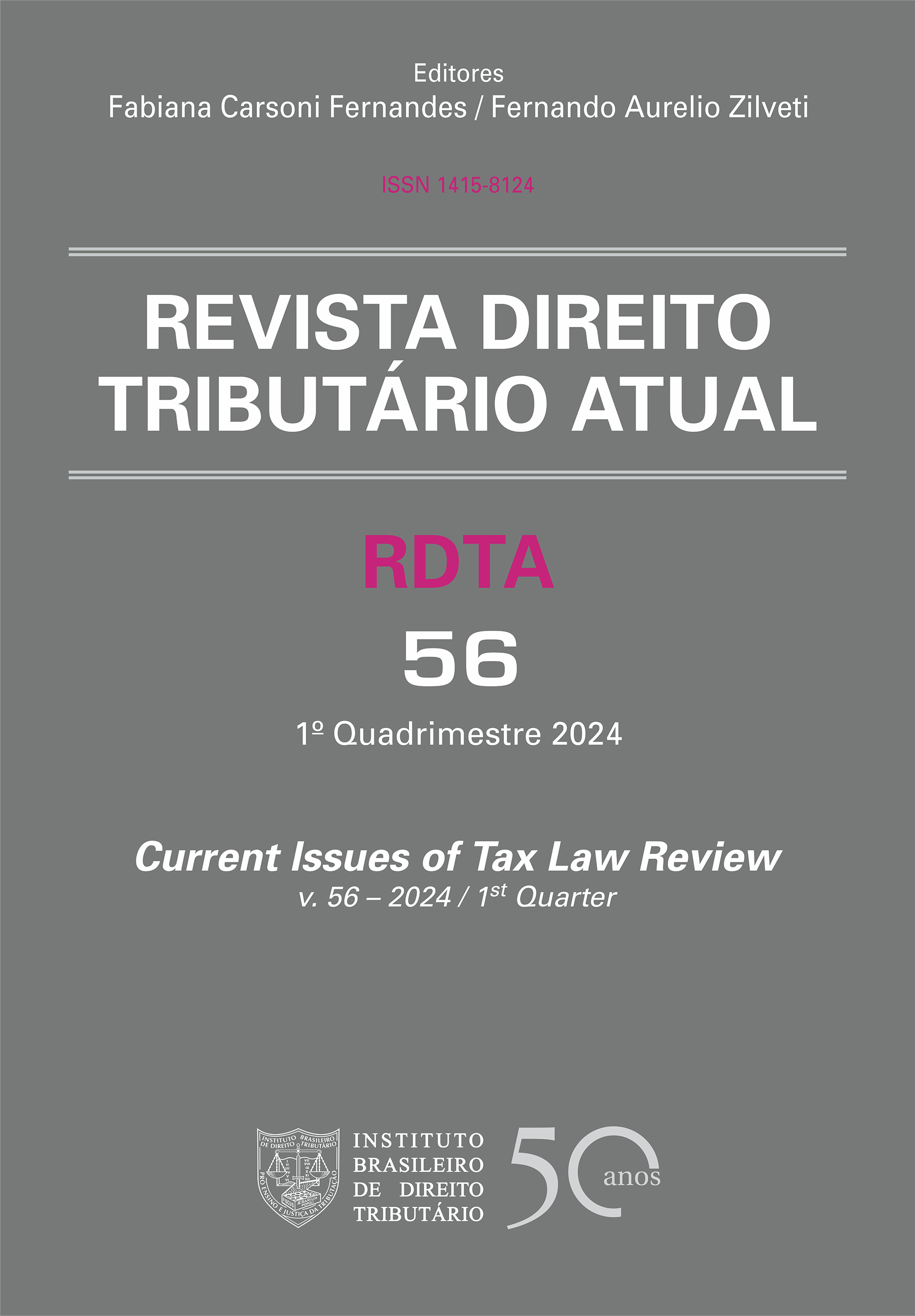Smart Tax
how can Smart City Taxation Achieve the Sustainable Development Goals?
DOI:
https://doi.org/10.46801/2595-6280.56.19.2024.2526Keywords:
smart tax, SDG, smart city, sustainable development, anti-discriminatory taxation, tax reformAbstract
In 2016, the United Nations (UN) outlined, in its 2030 Agenda, seventeen objectives for the achievement of sustainable development (SDG). Envisioning sustainability beyond the traditional and extremely important environmental focus, the UN linked this idea to others equally relevant to social advancement, such as reducing inequalities, promoting gender equality and innovation. This article, considering this context, studies it in association with the themes of taxation and smart cities. From this perspective, the research is guided by the following problem question: How can taxation help promote the SDGs in smart cities? The present work, aiming to find an answer to the question raised, presents a new model of tax policy, the smart tax, which consists of the contemporary application of taxation in the context of smart cities, with the aim of achieving the Sustainable Development Objectives – SDGs defined in the UN Agenda 2030. The article, therefore, seeks to outline the fiscal policy measures applicable to these cities, taking into account the municipal tax powers provided for in the Federal Constitution, as well as the new tax law guidelines brought by the Tax Reform (Constitutional Amendment No. 32/2023). The text of the article presents measures capable of achieving the sustainable development of smart cities, taking into account the need to apply anti-discriminatory tax law and aimed at reducing structural inequalities. The conclusion of the research is that taxation can and should be an efficient instrument to achieve these objectives such as: connectivity and accessibility to public services through technology, energy efficiency, clean energy, urban mobility, circular waste economy, basic sanitation accessibility, gender, race and class equity, appreciation of cultural heritage, guarantee of integrity of institutions, sustainability of the local economy, among others.
Published
How to Cite
Issue
Section
License
Copyright (c) 2024 Karoline Lins Câmara Marinho de Souza, Mariana de Siqueira

This work is licensed under a Creative Commons Attribution-NonCommercial-ShareAlike 4.0 International License.
O autor (ou coautor) declara que o artigo submetido à avaliação, que segue em anexo, é de sua autoria, e inédito, comprometendo-se a não publicar este artigo em qualquer outro meio, impresso ou digital, mantendo a exclusividade para a Revista Direito Tributário Internacional Atual, cedendo, em caso de aprovação do trabalho, os direitos autorais à Revista para fins de publicação do trabalho nesta edição.





